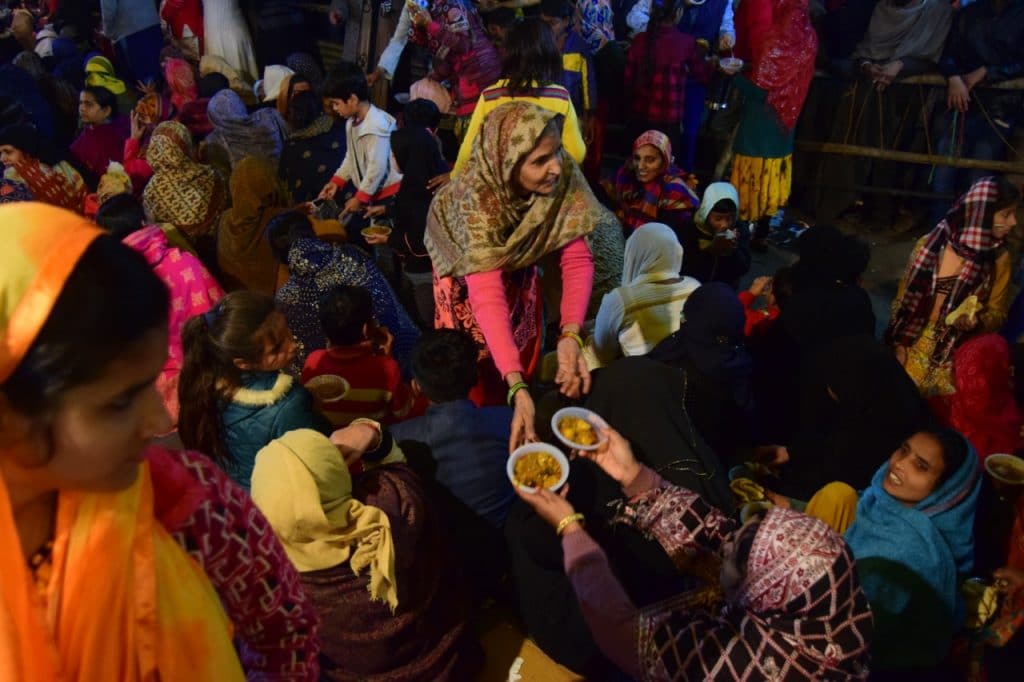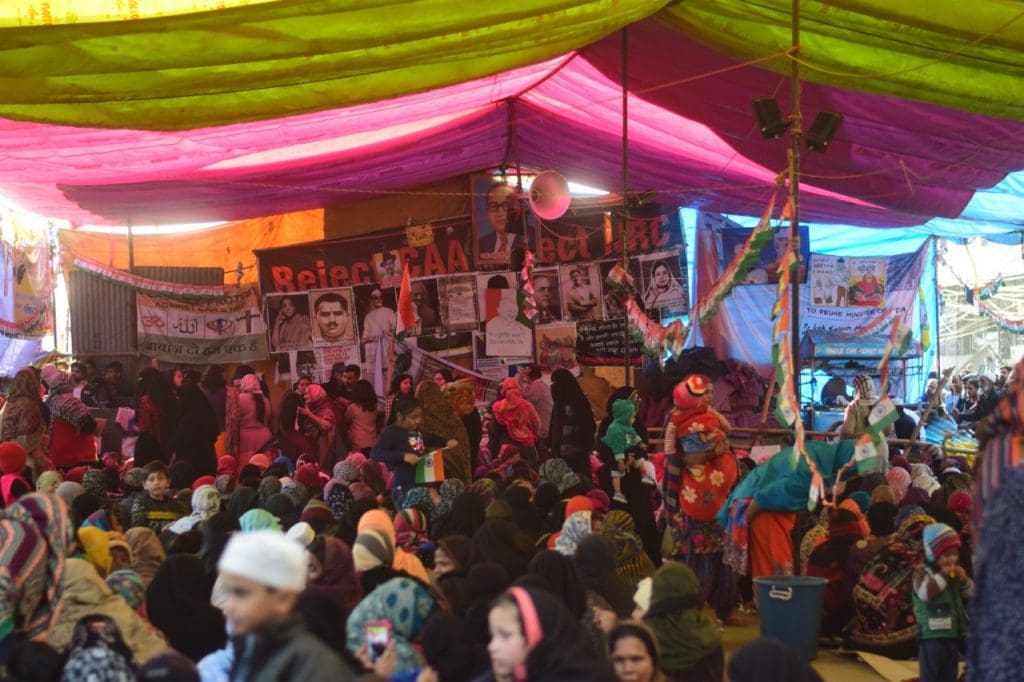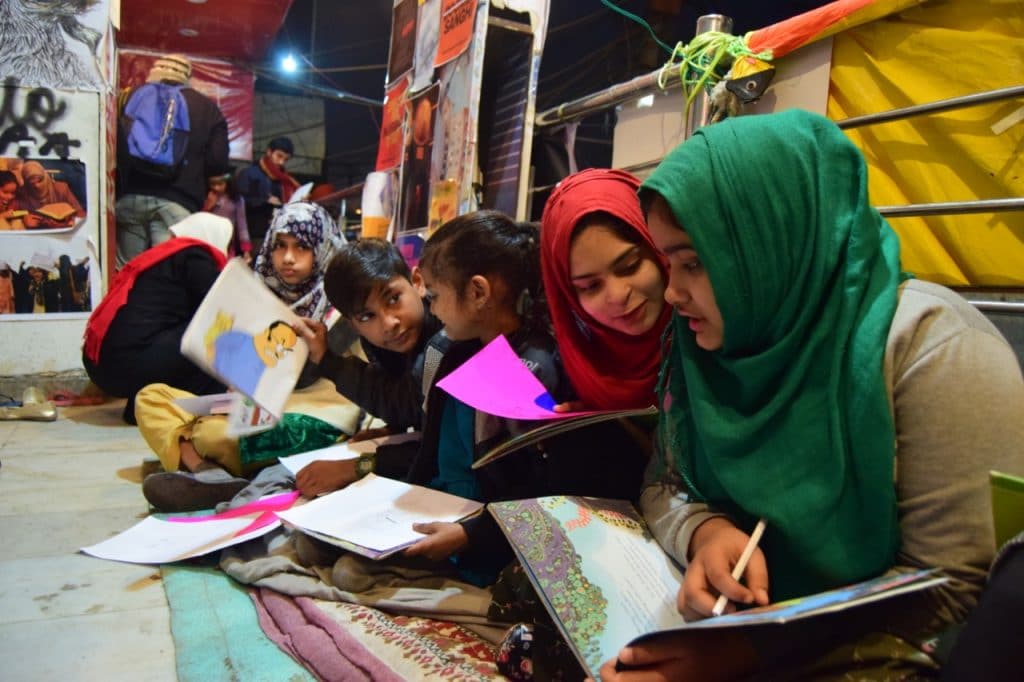
Third, drawing on writings by Derrida, Deleuze, Gluckman, Geertz, and others, my contention is that Shaheen Bagh is better understood as a supranational, supraliberal event in that it also marks the limits and underbelly of nationalism. Finally, I propose that as an act of ethical politics, Shaheen Bagh deactivates the prevalent politics as a raw majoritarian calculus, mediatized spectacle, and an ethnic ambition. That this movement was halted by bureaucrats of the present does not mean that it is over. Actually, what was the emergent in the movement awaits its future. That future is in terms of the potential and possible rather than merely existent or real.
What is an Event? Insights from Anthropology and History
Anthropology or sociology has also studied event. A key aspect of anthropology’s interest has been rites of passage. Think about life cycle events: baptism in Christianity, sacred thread ritual for twice-born Hindus and circumcision among Muslims. Every society has this kind of event around key moments in one’s life: birth, marriage and death. Anthropological interest in events also pertains to festivals like the Amazonian ox dance festival in Brazil. Another kind of event interesting for anthropologist has been pilgrimages: for instance, the study of the Hindu pilgrimage site of Ayodhya by Peter van der Veer, a noted Dutch scholar. In such anthropological studies, focus has often been on institutionalized or patterned behavior. In Argonauts of the Western Pacific, Bronisław Malinowski (d. 1942), a foundational figure in British anthropology, kept stressing that anthropologists studied “the typical ways” of the natives.As such, anthropology was initially indifferent to the non-regular, emergent aspects of life.
However, things began to change somewhat with Max Gluckman (d. 1975), regarded as the founder of the Manchester school of anthropology. In his work on South Africa, Gluckman, who was interested more in conflict than his predecessors who stressed harmony, analyzed opening ceremony of a bridge built by white colonists in Zululand. In analyzing that non-regular, event, he showed how beneath the harmony displayed at the bridge ceremony lay multiple conflicts. In anthropology, Gluckman’s method of analysis became known as situational analysis. It is also called extended case method. The book Negara: The Theatre State in Nineteenth-Century Bali by American anthropologist Clifford Geertz deals with a monumental event in Indonesia’s history: mass suicide by the Hindu royal court in Bali before the Dutch invasion. Central to the book, however, is not event as a philosophical term (see below) but Geertz’s conceptualization of the theatre state.
Veena Das’ Critical Events is an important book that discusses key events in Indian societies. Referring to François Furet, a French historian, she defines critical event as one that inaugurates “new modes of action” radically different from the past. Beyond this, there is no engagement with event as a concept, however. Nor is there any mention of Geertz’s Negara or of any work by Gluckman. In Das’ usage, events mostly function as case studies as she focuses, among others, on Partition violence and the Bhopal gas disaster victims. Since the ruling power sought to suppress the anti-CAA movement in the form of the 2020 Delhi pogrom (not riot, as it is wrongly designated), it is doubly important to point out the following. Das described the 1984 violence against Sikhs as “riots,” not pogrom or massacre, marking thereby an affinity between the vocabulary of the anthropologist and that of the majority, itself instituted by colonial rule and obediently continued by the “postcolonial” state. Furthermore, to describe the 1984 anti-Sikh pogrom as “riots” betrays the book’s own interest in events because riots are almost regular.
Veena Das described the 1984 violence against Sikhs as “riots,” not pogrom or massacre, marking thereby an affinity between the vocabulary of the anthropologist and that of the majority, itself instituted by colonial rule and obediently continued by the “postcolonial” state.
Along with anthropologists, historians too study events. Indeed, events have been their pet theme. In India, Shahid Amin’s Event, Metaphor, Memory: Chauri Chaura, 1922-1992 is one example. Broadly speaking, we see three moments in the take by historians on events. In positivist kind of historiography, the premise behind studying events has been the notions of rupture like war, revolution and great incidents. This focus was aligned to the great heroes as motor of history. It was against this style of historiography that Ferdinand Braudel, the French historian of Annales School, showed his deep skepticism. For Braudel, what mattered was not event but process, which could span over centuries, even millennium. Hence Braudel’s call for “longue durée.”Immanuel Wallerstein who developed world-systems theory extended Barudel’s tradition. Some scholars, especially anthropologists and political scientists, use medium- or demi-durée rather than longue durée. Recent development in the study of events dates to the 1990s and is associated with historian Pierre Nora (b. 1931) who pays attention not to the taken-for-granted notion of events but how they are produced, designed and narrated. In such writings, focus is placed on modernity and on the role of the media and democracy.
Philosophy of an Event
Arguably, philosophers have offered a different and richer approach to events, who I now turn to. Insights from two French philosophers––Gilles Deleuze (d. 1995) and Jacques Derrida (d. 2004)–– are vital to my argument about Shaheen Bagh as an event of the future.


For Derrida, who thought more about it in his later writings, an event, unplanned. It is surprising and singular. Due to its exceptional nature, an event, therefore, attacks the horizon of comprehension and understanding as they prevail. Not surprisingly, the language unleashed by an event appears as foreign to the existing order of knowing. Though it may seem paradoxical to some, an event is not one-time affair. Its very novelty is prefigured in the past as much as an event beckons to its coming back.
In short, what the dissenters in Shaheen Bagh desired was a radical break with the obscenity and ugliness of an unjust power arrangement.
In Deleuze’s thought, an event marks the emergence of something potential or new. Here Deleuze departs from the orthodox sociology, anthropology or politics in which an event is mostly viewed as merely reflective of the social and political. To Deleuze, an event instead inaugurates the social and political in that it is not about bare being but becoming as an agentive process. When seen holistically, an event is marked by a novel type of interaction amongst languages, bodies, things, spaces and words. Hooked to continual becoming, the constitutive elements of the potential and the emergent in an event appear at the heart of Deleuze’s reflections on events. Precisely in terms explicated so far, Shaheen Bagh was an event.
To reflect on observations by Derrida and Deleuze is to also address the nature of political setup in which events unfold. In a repressive setup or controlled democracy, which largely fits the case of India, the dynamic of an event is substantially different. Participants of an event in repressive setups have to creatively negotiate the emergent with the dominant and the potential with the existent. In Lacanian psychoanalysis, there is a term called over-identification, which Slavoj Žižek and others later expanded to understand the acts of subversion in a totalitarian polity. Over-identification is a mechanism by which actors adapt to the dominant norms of an (dis)order of power more earnestly than the devotees to the power themselves, and who behave as guardians of those norms. In identifying with those norms and symbols of power in “exaggerated” terms, their aim is not to sacralize them but to underline the limits and underbelly of those very norms and symbols in order to carve out space for the emergent and the potential. In short, what the dissenters in Shaheen Bagh desired was a radical break with the obscenity and ugliness of an unjust power arrangement.
With this conceptual groundwork laid and almost completed, the stage is set to see how Shaheen Bagh was/is an event. An epic one at that!
Shaheen Bagh as an Event
Had anyone predicted the occurrence of Shaheen Bagh as an event, let alone of its spectacular scale and intensity? Definitely not! So, as an event Shaheen Bagh was unplanned as it was unprecedented. An effective way to understand Shaheen Bagh as a surprise is to contrast it with the so-called India against corruption (IAC) campaign led, among others, by Anna Hazare, Baba Ram Dev and Arvind Kejriwal. The IAC campaign was pretty much planned. In one account, it was planned in a two-day seminar at the Vivekananda International Foundation, an RSS think tank headed at that time by Ajit Doval. Clearly, the media and the power elites backed the agitation in almost every respect. Again, unlike the IAC agitation, the mainstream media hardly took note of Shaheen Bagh. When they did, most media platforms wedded to replaying the government line reported about it only negatively.
Had anyone predicted the occurrence of Shaheen Bagh as an event, let alone of its spectacular scale and intensity?
As an event, Shaheen Bagh was unprecedented in the same way as it was unplanned. In too short a span of time, the sheer scale, magnitude and intensity of the movement seemed to surpass any sustained, effective mobilization of and by Muslims in post-Partition India. The unprecedented nature of Shaheen Bagh was also manifest in the active participation by women, not as spectators but as powerful leaders of the disempowered communities: leaders like the learned 81-year old Bilqis Bano with no formal educational degree. So pivotal were women’s participation and their leadership that in utter frustration, partisans of Hindutva and opponents of Shaheen Bagh went to the ridiculous extent of branding Bilqis dādī (grandmother) as a “terrorist” and an “agent of Pakistan.”


Much like the emergence of the octogenarian Bilqis, of the many aspects of the emergent in Shaheen Bagh was the unannounced, unforeseen onset of many significant leaders –– girls as well as boys –– from the youth. Notably, the youth were armed with a significantly new and potent vocabulary, which defied dominant neat classification between “traditionalist” and “modernist,” “conservative” and “progressive,” “right” and “left,” “Islamists” and “nationalists” and so on. In contrast to the norms of Indian politics, not only those young leaders had no affiliation with criminal politicians like Shahabuddin (from Bihar) or suave, English-speaking parasites like Salman Khurshid or Deoband-based Mahmood Madani, they indeed emerged in spite of those established leaders. It is perhaps accurate to say that leaders generated by Shaheen Bagh in fact emerged in defiance of the traditional leaders most of whom had often worked as shameless power brokers.
The event that Shaheen Bagh was almost dissolved the iron wall between leaders and the led or between performers and spectators. There was no leader or follower; nearly everyone was simultaneously a leader and a follower.
Notably, these new leaders are not from the few established political families like the Abdullahs, the Kidwais or any such lineage. Because of its predominantly self-generated nature, to see Shaheen Bagh movement in terms of the customary categories of leaders and the led would actually amount to an analytical suffocation. The event that Shaheen Bagh was almost dissolved the iron wall between leaders and the led or between performers and spectators. There was no leader or follower; nearly everyone was simultaneously a leader and a follower.
Irfan Ahmad a political anthropologist, is a senior research fellow at the Max Planck Institute for the Study of Religious & Ethnic Diversity, Göttingen, Germany.



